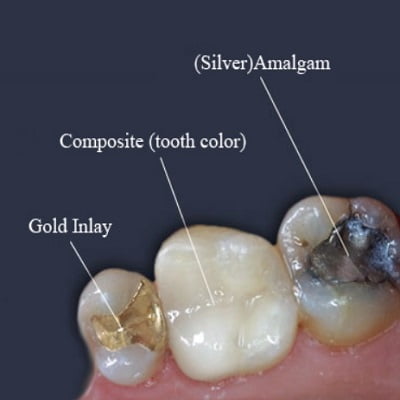
Dental fillings are a common dental procedure used to restore teeth damaged by cavities or fractures. They help to prevent further decay and restore the functionality of the affected tooth. Over the years, advancements in dentistry have introduced various types of fillings, each with its own set of pros and cons.
In this blog post, we will explore the different types of teeth fillings in Islamabad and discuss their advantages and disadvantages. So, take a moment and read the following details.
Amalgam Fillings:
Amalgam fillings, also known as silver fillings, have been used for over a century. They are made from a combination of metals, including silver, tin, copper, and mercury. Amalgam fillings are highly durable and can withstand the forces of chewing, making them suitable for posterior teeth. They are also cost-effective compared to other filling materials.
Pros:
- Long-lasting and durable.
- Can withstand heavy chewing forces.
- Cost-effective option.
Cons:
- Aesthetic concerns due to their silver color.
- Contains mercury, raising concerns about potential health risks (although the American Dental Association considers them safe).
Composite Resin Fillings:
Composite resin fillings are tooth-colored fillings made of a mixture of plastic and glass particles. They are a popular choice for filling cavities in visible areas of the mouth due to their aesthetic appeal. Composite resin fillings are versatile and can be used for both anterior and posterior teeth.
Pros:
- Aesthetic appeal as they can be matched to the natural color of teeth.
- Bond directly to the tooth structure, providing additional support.
- Less tooth structure removal compared to amalgam fillings.
- Suitable for small to medium-sized restorations.
Cons:
- Less durable than amalgam fillings and may need replacement over time.
- Can be more expensive than amalgam fillings.
- Susceptible to staining from certain foods and drinks like coffee, tea, and tobacco.
Ceramic Fillings:
Ceramic fillings, also known as porcelain or ceramic inlays/onlays, are indirect fillings that are fabricated in a dental laboratory and then bonded to the tooth. They are highly aesthetic and can be matched to the natural color of the tooth, making them an excellent choice for visible areas.
Pros:
- Highly aesthetic, providing a natural appearance.
- Strong and durable.
- Resistant to staining.
- Suitable for large restorations.
Cons:
- More expensive than amalgam and composite fillings.
- Requires multiple dental visits as they are fabricated in a laboratory.
- Requires more tooth structure removal compared to composite resin fillings.
Gold Fillings:
Gold fillings, also known as gold inlays or onlays, have been used in dentistry for many years. They are made of a mixture of gold and other metals, providing excellent durability and strength. Gold fillings are mainly used for posterior teeth and are well-tolerated by gum tissues.
Pros:
- Highly durable and long-lasting.
- Less tooth structure removal compared to other materials.
- Well-tolerated by gum tissues.
- Excellent strength for withstanding chewing forces.
Cons:
- Aesthetic concerns due to their gold color.
- More expensive than other filling materials.
- Requires multiple dental visits for placement.
Glass Ionomer Fillings:
Glass ionomer fillings are made of a mixture of acrylic and glass powders. They release fluoride, which helps to prevent further decay. Glass ionomer fillings are commonly used in pediatric dentistry, as they are easier to place and less sensitive to moisture during the filling process.
Pros:
- Releases fluoride, aiding in preventing further decay.
- Bonds chemically to the tooth structure.
- Suitable for small restorations and root surface cavities.
- Easier to place, making them ideal for children.
Cons:
- Less durable compared to other filling materials.
- Prone to wear and fracture.
- Not suitable for areas with heavy chewing forces.
The Bottom Line!
Choosing the right type of dental filling depends on several factors, including the location and size of the cavity, aesthetic concerns, durability requirements, and cost. Your dentist will consider these factors and recommend the most suitable option for your specific needs.
Ultimately, it is crucial to consult with your dentist at SKN Cosmetic Clinic Islamabad, who will evaluate your oral health condition and guide you toward the best filling material that meets your requirements. Regular dental check-ups and maintaining good oral hygiene practices are essential for ensuring the longevity of any dental filling and overall dental health.


